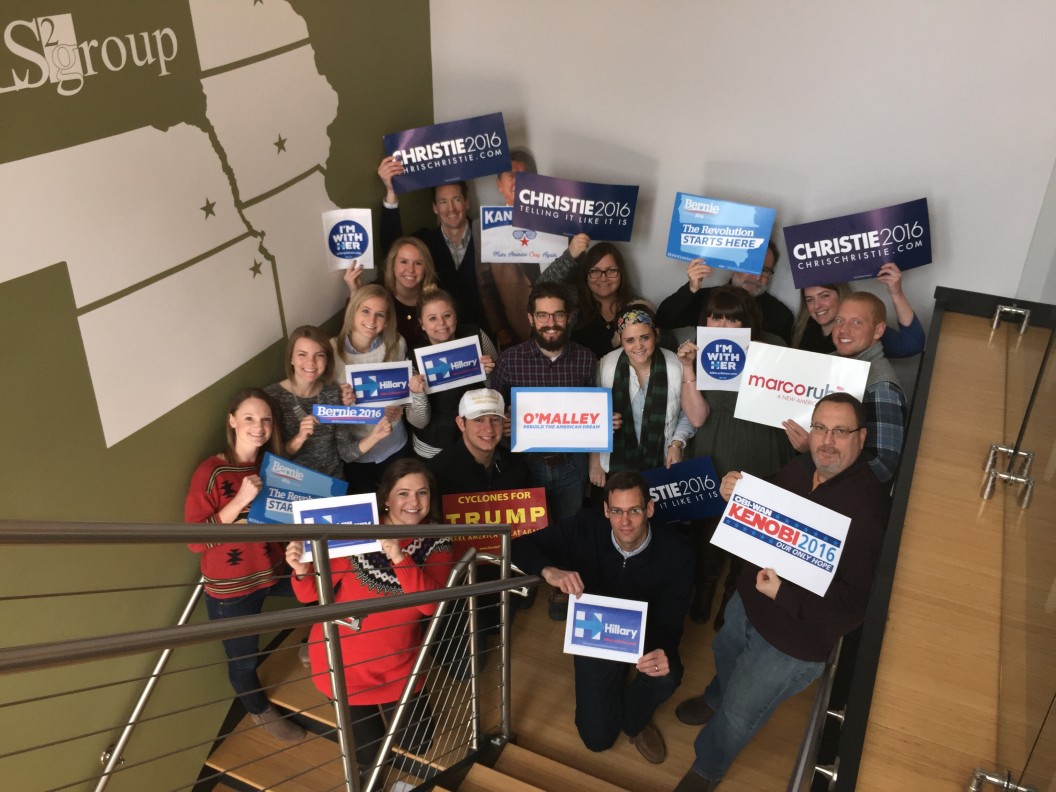What to do in the Democratic Iowa Caucus when your first choice is not viable?
Feb 15

In 2008 as a first-time caucus participant, I was a bit of an idealist with my first choice, Dennis Kucinich. He was going to end the war in Iraq faster than any of the other candidates—day one, baby!
I had read countless articles about the caucus and strategy for Democrats, and I felt prepared to win enough people over to send a delegate in support of Kucinich. I baked a pan of brownies to entice my neighbors into the Kucinich corner, but unfortunately, per the school’s music room’s rules, I was unable to bring in the homemade treat. No matter how good my baking might have been, Iowans take the caucus seriously and I probably would not have been able to change too many of my neighbors’ hearts and minds via their taste buds.
Unfortunately, when everyone divided into their initial preference groups, the support of just a few people meant Dennis Kucinich wasn’t a viable candidate. Several of the people in my corner took the ‘Kucinich or Bust’ approach to caucusing and left the room as soon as he was declared short of viability in the initial alignment.
Enamored with the process of grassroots democracy during the Iowa Caucus, I stayed and joined my strong second choice pick, Senator Obama. I volunteered to continue on as a delegate and got to represent my neighbors in the county, district, and state conventions.
This year, eight years after my first caucus, I again chose someone who might struggle to gain viability. In the last debate before caucus night, my candidate, Martin O’Malley, encouraged his supporters to hold strong.
Why organization matters in the caucuses:
From the perspective of a viable preference group, you can reduce the number of delegates of a rival by sending enough of your own caucus members to a third preference group. If the third preference group ends up one person closer to the next delegate than your rival, the third group steals your rival’s delegate. Being organized can mean the difference between getting an additional delegate for your candidate and missing out on a great opportunity to send a message to the world.
Some people remember that eight years ago Barack Obama won the Iowa Caucus, but weeks later Hillary Clinton won more delegates on Super Tuesday. What many people do not remember is that Barack Obama more than made up for his Super Tuesday delegate deficit by winning more delegates at the later county, district, and state conventions in Iowa.
How to negotiate as a member of a non-viable preference group:
Get to know the people in your caucus group. Discuss the reasons you support your candidate, what strategy to employ to become viable, and what your contingency plans are if everything else goes wrong.
Get to know the precinct captains and leaders for the other candidates. This should be well before the caucuses, but can also be done that night. They will be some of the first people to arrive.
In our negotiations on caucus night, this time, we were not close enough to our first county delegate, so my O’Malley preference group offered to accept people from either the Sanders or Clinton campaigns to make us viable, and to then send one of their people as our delegate to the county convention. This would guarantee that someone from his or her camp continued through the process to pick a nominee at the national convention.
Had the O’Malley camp been close enough to their first delegate that a donation of support from Sanders would have stolen a delegate from Clinton and not stolen one from Sanders, the O’Malley camp would have been negotiating from a position of strength.
Neither the Sanders nor the Clinton preference groups accepted our offer because they realized that the precinct caucuses are a media event. The media interprets the results and creates narratives about the candidates and their momentum going forward. The other camps preferred to increase their delegate count that night more than anything else.
Our next strategy was to offer to caucus in block with either the Sanders or Clinton preference group in exchange for having O’Malley supporters sent on as Sanders or Clinton delegates. This would have given the Sanders or Clinton campaign the delegate that gets noticed by the media and in exchange, the O’Malley supporters would continue as county delegates in the nominating process.
The Sanders and Clinton preference groups were much more open to this offer. They were willing to send O’Malley supporters as Sanders or Clinton delegates for the full support of the O’Malley block. This is where our negotiations broke down. We did a quick internal poll to see whom our fellow O’Malley supporters would select as their second choice. In my precinct caucus, people supported O’Malley for a myriad of reasons and some had very strong second choice candidates in either Sanders or Clinton. In the end, the O’Malley camp disbanded. We suggested everyone vote with his or her heart and we joined the other camps in nearly proportional amounts.
We thanked all of our supporters, the organizers, and the supporters of the other candidates for being so gracious in our efforts to get a delegate. No matter who you support or how things end up for your first choice candidate, caucusing with your neighbors and discussing the issues that matter most to you is one of the most fun and rewarding experiences in the American political process.
